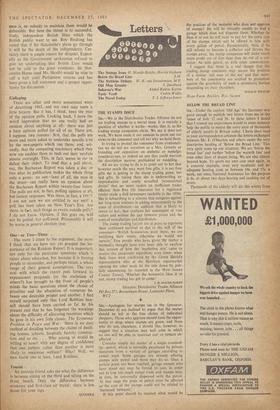One — or Two — Three • The more I listen to the argument,
the more I think that we have not yet grasped the im- portance of the Robbins Report. It is important, not only for the particular questions which it raises about education, but because it is forcing people to reconsider, and perhaps recast, a whole range of their general assumptions. The very zeal with which the report puts forward its expansionist proposals (to the exclusion of others?) has brought to the front of people's minds the basic questions about the choice of priorities and the allocation of resources be- tween one desirable project and another. I find myself surprised only that Lord Robbins him- self should have been carried so far by his present zeal that he has forgotten the warnings about the difficulty. of allocating resources which he gave in his own little classic, The Economic Problem in Peace and War: 'there is no easy method of deciding between the claims of dwell- ing houses, schools, hospitals, factory construc- tion and so on. . . . Who among us would be willing to assert With any degree of confidence that one pattern rather than another is most likely to maximise welfare?' Who? Well, we now know one at least, Lord Robbins.






























 Previous page
Previous page